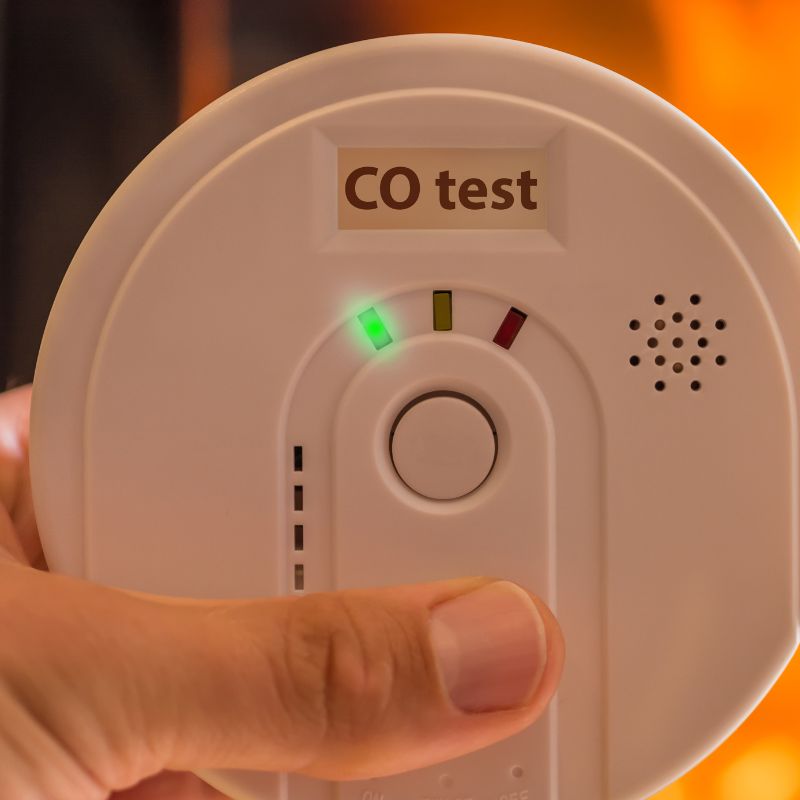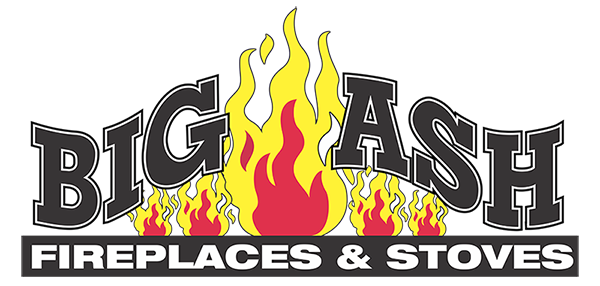Gas fireplaces are a popular heating choice here in the Orleans County and Monroe County area. And why wouldn’t they be? They add warmth and ambiance to a home without the hassle involved with building, maintaining, and cleaning up after a wood fire, and they definitely deliver on heat. That said, this boost of efficiency and convenience can often lead to homeowners letting their guard down.
So, picture it: you’re cozied up by your gas fireplace, you’ve just enjoyed a great movie with your family, and everyone is ready to hit the hay…but you’d love to wake up to this same level of coziness. Would it really hurt to leave the fire going all night? It’s not like it’s a wood fire…there’s no real chance of something going wrong, right? Well, not so fast.
No fireplace, no matter the fuel type, efficiency level, model, or year assembled, should be left on overnight without supervision by a responsible adult.
We’ve got the facts below. Questions? Or do you need to book your annual service? Whatever you need, we’re here to help – call or reach out online now.
What Are the Biggest Risks of Running a Gas Fireplace All Night?
Running a gas fireplace all night can pose several risks. Here are some of the most significant ones:
- Carbon Monoxide Poisoning: Gas fireplaces produce carbon monoxide (CO), a colorless, odorless gas that can be deadly. Although most modern gas fireplaces are designed to vent CO outside, malfunctioning or improperly maintained units can allow CO to build up inside your home. Symptoms of CO poisoning include headache, dizziness, weakness, nausea, confusion, and in severe cases, it can be fatal.

- Fire Hazards: Extended use of a gas fireplace can increase the risk of a fire, particularly if there are flammable materials nearby. A malfunction or a spark could ignite furniture, curtains, or other flammable items.
- Oxygen Depletion: Although modern gas fireplaces are generally safe, older models or those without proper ventilation can deplete the oxygen in a room. This is especially dangerous in tightly sealed homes.
- Health Issues: Prolonged exposure to the byproducts of combustion, even at low levels, can irritate the respiratory system. This is particularly concerning for individuals with asthma or other respiratory conditions.
Some other things to consider? Keeping a gas fireplace running all night can significantly increase your gas bill. While this is more of a financial concern, it is still a factor to consider. In addition, continuous use can cause more rapid wear and tear on the components of your gas fireplace, potentially leading to more frequent repairs or earlier replacement.
Are Gas Fireplaces Generally Safe?
Now, yes…there are risks when operating a gas-fueled fireplace or heating appliance if you don’t use your gas fireplace properly.
That said, gas fireplaces are generally considered safe when properly installed, maintained, and used according to manufacturer guidelines.
Here are some key safety considerations to keep in mind to ensure you stay as safe as possible:

- Professional Installation: Ensure the fireplace is installed by a certified professional. Proper installation includes appropriate venting and ensuring all connections are secure to prevent gas leaks.
- Proper Ventilation: Proper ventilation is crucial to avoid the buildup of harmful gases like carbon monoxide (CO).
- Annual Inspections & Cleaning: Have your gas fireplace inspected annually by a professional to check for any issues such as gas leaks, blockages, or wear and tear. In addition, regular cleaning of the fireplace and its components, such as the glass doors and burner, is necessary to maintain efficient operation and safety.
- Carbon Monoxide Detector Installation: Install carbon monoxide detectors in your home, particularly near sleeping areas and the fireplace. Test the detectors regularly to ensure they are working properly.
- Manufacturer Instructions Adherence: Always follow the manufacturer’s instructions for proper operation and improved safety.
- Gas Leak Awareness: Be aware of the signs of a gas leak, such as a rotten egg odor, and know how to shut off the gas supply in an emergency situation.
- Proper Clearances: Keep the area around the fireplace clear of flammable materials such as curtains, furniture, and paper. Also, remember that the glass on gas fireplaces can get extremely hot – use a safety screen to prevent accidental burns, especially if there are children around.
Additional safety measures include never leaving a lit gas fireplace unattended, especially when children or pets are present, keeping a fire extinguisher nearby (and knowing how to use it), and ensuring everyone in the household knows all necessary safety guidelines.
Which is safer…vent-free or vented?
People tend to opt for vented gas fireplaces when prioritizing safety. These have a venting system that expels combustion byproducts outside the home, making it safer for longer use.
That said, when used correctly, vent-free fireplaces are a great option. It’s just important that they be installed in well-ventilated areas and used only for limited periods to avoid excessive moisture and CO buildup.
Have More Questions? Give Our Experts a Call Today!
If you have more questions or need personalized advice, don’t hesitate to reach out to our experts. We’re here to help ensure your gas fireplace operates as safely and efficiently as possible.
Reach out online or give us a call today!

Recent Comments